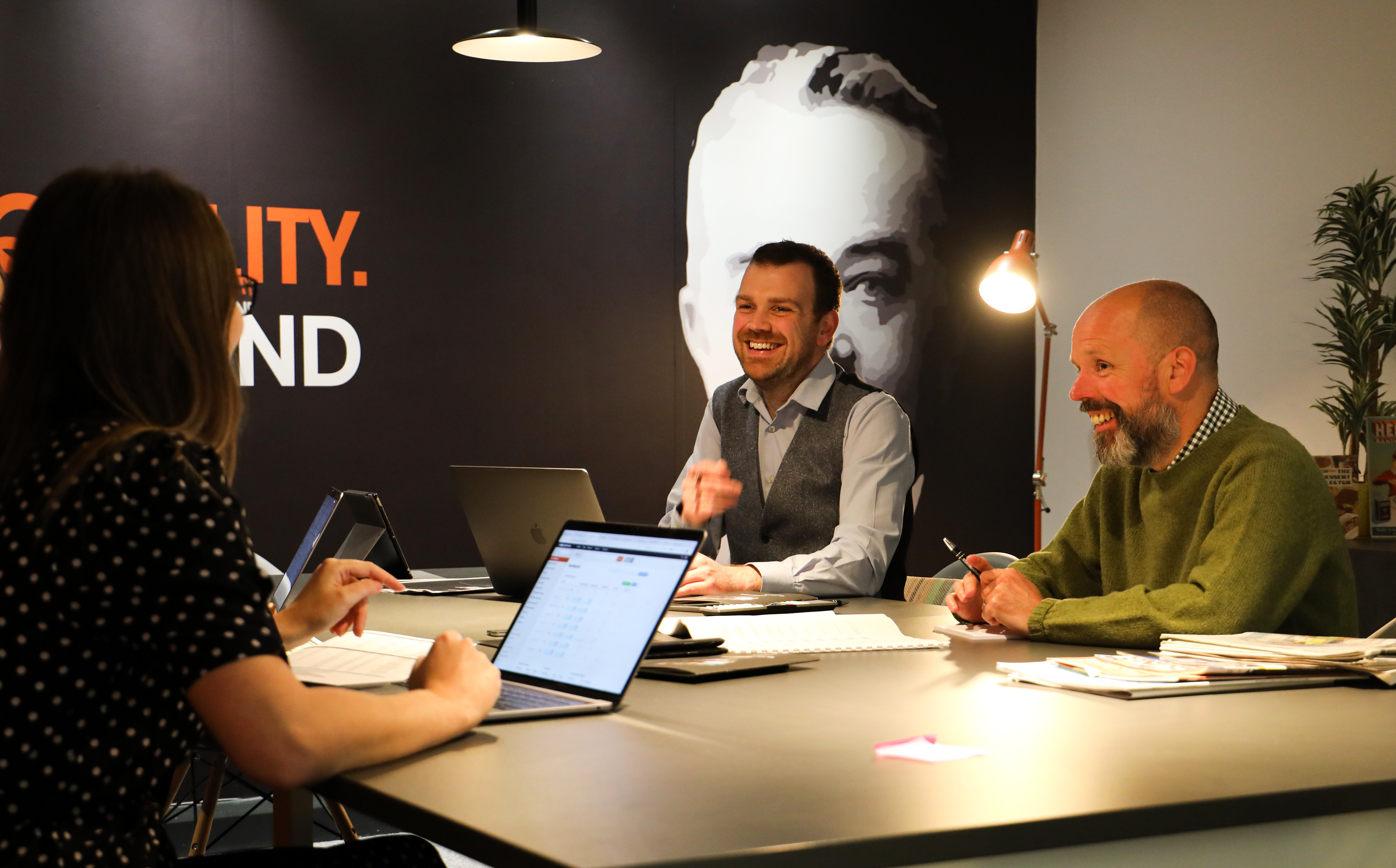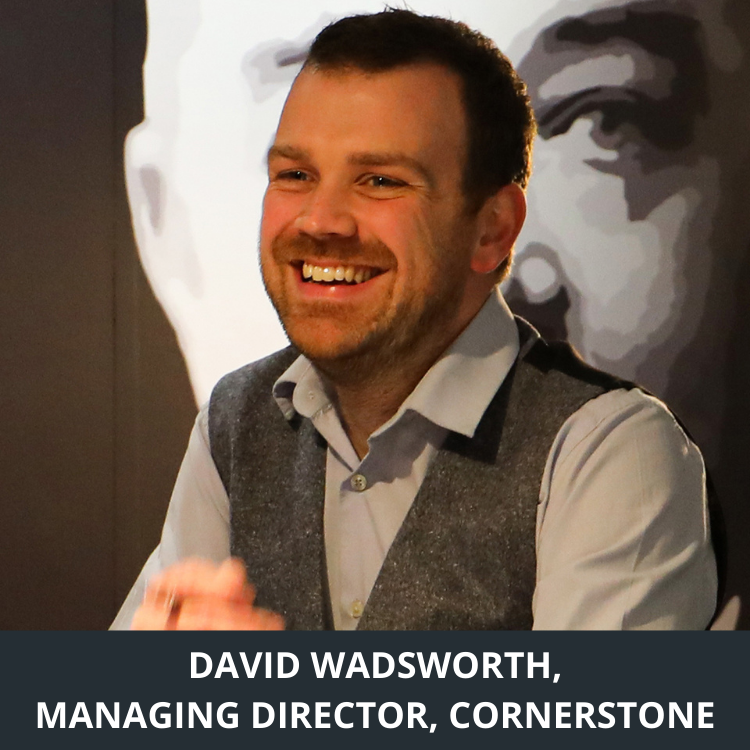Why Gladstone's API is a Game-Changer for Leisure Customer journeys. A Marketeer’s Insight…
Cornerstone Design and Marketing’s MD, David Wadsworth, has worked closely with the public and private leisure sectors for around 13 years.
Throughout that time, there’s always been one problem he’s wanted to solve, that of connecting customer journeys and automations to leisure operators’ disparate systems to create a more cohesive, streamlined journey for leisure customers.
A journey that drives commercial success, improves the cross selling of services and activities, and creates a healthier, more active society.
Here, David explains how a new API (Application Programming Interface) - an interface that enables different apps to exchange information with each other – could be a game changer and provide the answers he’s been seeking.
Customer journeys aren't linear. They bounce around endlessly - their goals and their focus change as life changes.
Many traditional ‘in system’ automations or journeys were, and still are, quite linear. The typical belief being that someone comes to the gym, does their induction, goes through a cyclical workout programme, either to progress, or lapse as a member, and then come back again if we’re lucky. But the reality is far more complex than that.
Members could join as a swimmer, as a rehab patient, an outdoor activity customer, high ropes user, climbing enthusiast, or theatregoer. The offering from our 'leisure' sector is so broad and diverse the reality is, customer journeys can be complex, multi-faceted and deep. And confusing!
So how do we overcome this?
By centralising customer journeys outside of one granular system and locating them somewhere where all data is visible throughout the journey.
With organisations such as GM Active, Sport England, UK Active and many more driving for better integration into the health setting, there has never been a better time to integrate a joined up customer experience, one that helps reduce health inequalities, makes leisure more accessible and ultimately helps organisations not only survive, but thrive in a highly competitive, and aggressive marketplace.
Rolling out the welcome mat for a true game changer
After working in tech, finance, pharma and international market places, where automation is further advanced, I often found myself wondering why two-way, open APIs weren't more available in leisure. The reasons vary from area to area, all with solid explanations as to why they couldn't be adopted sooner.
As the number one choice for over 500 health and leisure operators, servicing more than 40,000 users and 8m members, Gladstone is a trusted software partner of choice within the leisure industry.
The recent launch and investment from Gladstone in their two-way, more open API could genuinely be a game changer for marketers like me, as well as organisations willing to not only adopt what's on offer, but realise the true, and wider potential this change in the market poses. This is why Gladstone is playing a key part in connecting the dots. It can be set up to consume data from other systems and serve that data out via its own API. This means customer journeys can be mapped, joined, and cross sold where they really matter, giving a marketer the best ability ever to deliver on their long term objectives and requirements. Check out the Knowledge Base for the latest API information from Gladstone.
Here's a run-down of how I think Gladstone’s innovation can be leveraged to do good and add some serious social value.
Collaboration is at the heart of success
If you look at any of the major gains and successes within the industry, they come from collaboration.
There are generally two camps when it comes to innovations like this. One is that we work together and help each other succeed, and the other is that some will aim to protect and defend their position, at the expense of project success, goals and ultimately the health of the nation.
I personally, and many others I work with, choose the former, as opposed to the latter. It's a more exciting, forward thinking way to progress, and one that helps change the nation’s health and wellbeing for the better.
Recently speaking with a number of partners across the UK and internationally, it's exciting to hear how willing people are to partner, share ideas and develop their own API integrations to work seamlessly with Gladstone or wider systems, in order to reduce health inequalities, drive participation and form a long standing, reciprocal partnership that drives long term success.
Imagine tracking a member for their lifetime, across systems, automations and life stages. The possibilities are endless.
The first thing someone is likely to say in response to this is ‘you’re chasing utopia’. The reality, however, with the right systems, intent and buy in, is this is genuinely possible.
Imagine a child on a swimming programme being signed up, and then tracked against that membership number for life. With the right preference data, insights and tracking, it's a genuine possibility. And what's better, you can monitor the health of your members, and the population over time, and track if they’re getting healthier, or not.
This might seem like a pipe dream, but it's a big possibility that buy in from systems providers, and those provisioning robust, modern day APIs are now making possible.
If you think of big commercial players across the globe, they're already doing it (think Apple, Amazon, Ikea, Microsoft etc), so we should surely be taking learnings from those leading the way, and adopting what's possible, and commercially sensible to drive and push for?
Imagine being able to predict someone’s buying behaviour before it happens, and actually positively impact that for health outcomes.
This is some deeper, more exciting stuff. Thanks to the joy of data collection and aggregation, coupled with the right AI technology, some serious strides forward can be made in tackling the industry accepted attrition rate, a figure that's bothered me since day one of being involved in the industry.
The beauty of data collection and AI is that we can anticipate what members are doing, and are likely to do within their buying behaviour, and positively influence this over time to reduce attrition rates, increase brand loyalty, and ultimately improve customers’ health and wellbeing. Everyone wins.
The exciting bit - stitching it all together
So, let's be honest, all the above isn't going to be achieved in a quick day or two's worth of work. It's a mammoth challenge, and a huge investment for any organisation really wanting to innovate in this sector. But the reality is, this model isn't something new to marketeers. It's been tried, tested, refined and delivered time and time again in various industries the world over, and something that can bring substantial benefit and value. The only way I believe this could work is by engaging some of the most influential thought leaders in the industry, and a marketing focused organisation that’s driven by change, health outcomes and results (I happen to know a good one!).
So, the future looks bright. But it also looks like a lot of bloody hard work, with plenty of blood, sweat, tears and API documentation along the way. But the outcomes? Well, that’s the exciting bit. And something that will happen sooner or later. Hopefully sooner.
Watch this space!
Cornerstone DM has been a trusted and reputable leisure marketing agency for many years.

We have an excellent track record in providing transformational strategic marketing, digital journeys, technical integrations and creative campaign expertise to our portfolio of regional and national organisations.
As a strategic marketing agency specialising in leisure, we focus on meaningful engagement with audiences which is devised not only to increase membership but also aimed at that all-important member retention and long-term loyalty.
To find out more about our work in the leisure industry, visit our website.
To take advantage of Marketplace discounts, make sure you contact Cornerstone via the Gladstone Website.

Share this
You May Also Like
These Related Stories

Digital Access with Gladstone: Everything you need to know

Gladstone Analytics: Real-Time Insights for Smarter Leisure Management



No Comments Yet
Let us know what you think